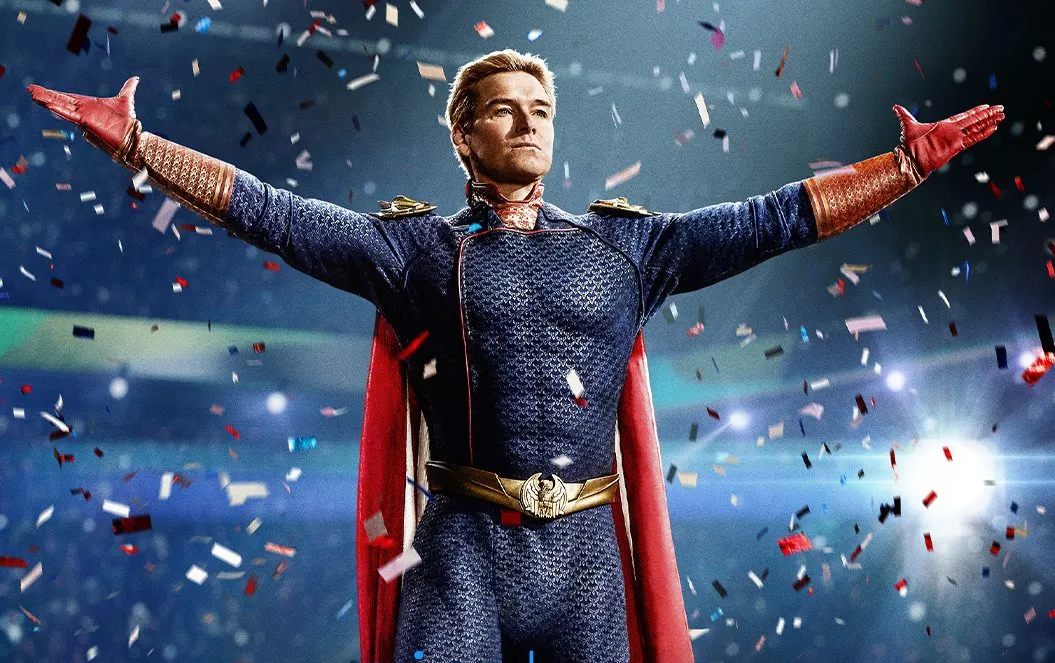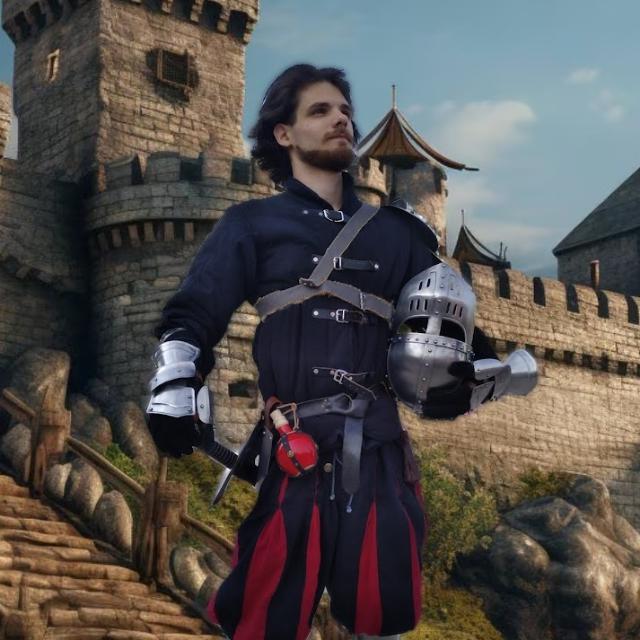Its always been about waking the people up. First it was showing the people an ideal version of themselves. Then it was about showing the people a version of themselves who had quibbles but never gave up. Then it was about showing the people the kinds of monster people can become when their moral character was neglected. Now? Its about showing the people they’re seen. Showing them we understand each other and can have solidarity.
Comics aren’t just woke. They haven’t just always been woke. They’re an alarm clock ticking down to our collective awakening
- generational wealth
- enough money, highly qualified personnel, and connections (both legitimate and clandestine) to bring real change to a blighted city
- does none of the sort
- dresses up as fursona to play vigilante
- brutalizes mentally ill people (but it’s okay because he doesn’t kill)
- crime lords and terrorists walk free because of notoriously terrible corrections system and no-kill policy
- literally resurrects a dead terrorist in Arkham City
- main appeal is cool gadgets made by other, more qualified people
Batman’s appeal is fading rapidly.

- enough money, highly qualified personnel, and connections (both legitimate and clandestine) to bring real change to a blighted city
- does none of the sort
He does use those resources to make change through charity and programs designed to improve the community. But that doesn’t instantly solve existing crime, particularly organized crime and corruption.
Plus, it will never actually fix Gotham because Gotham being shitty is part of the premise.
- brutalizes mentally ill people (but it’s okay because he doesn’t kill)
He beats up violent criminals, generally when they are in the middle of either attacking him, or attacking someone else, or otherwise doing something that would harm or endanger innocent people. That some of these people have varying degrees of mental illness is unfortunate, but they doesn’t mean they don’t have to be stopped.
- crime lords and terrorists walk free because of notoriously terrible corrections system and no-kill policy
Everyone of those criminals who walks free could have just as easily been murdered by any number of people during their time in custody. Why is it Batman’s responsibility to decide who lives and dies, and not any given cop or prison guard? And even if the system is broken, is it really better to have a masked vigilante killing people without trials (and appeals, and evidence, and oversight by some kind of authority)?
Also, let’s be real here, the reason they get out so predictably is not because of in-universe reasons, it’s because they want to keep bringing back villains. He could kill every supervillain in Gotham and most of them would be back in six months.
- main appeal is cool gadgets made by other, more qualified people
He’s the world’s greatest detective, a ninja, a world class martial artist, a scientist, an inventor, and one of the greatest strategists who ever lived. If he’s not qualified, who the fuck is?
is it Batman’s responsibility to decide who lives and dies
I’ve had a profound realization while playing Ghost of Tsushima. If adherence to a self-imposed moral code causes unnecessary suffering and death that could’ve been preventable otherwise, then it’s part of the problem. Batman is not stupid, he has to know that the most significant villains will escape Arkham and go back to crime and terrorism. He has the means to stop that and is consciously choosing not to. Deliberate inaction is a choice all the same. Removing those elements might not be civilized, but Gotham is frequently closer to a warzone than a civilization.
That same logic applies to everyone else too. If Batman has some obligation to play judge, jury and executioner, so does anyone else who gets the opportunity. By that reasoning, cops who see criminals getting back on the street again and again should take matters into their own hands and just kill suspects who they believe are too dangerous to entrust to a broken system.
Batman isn’t just trying to beat up every criminal in Gotham, night after night, one by one. He’s trying to clean up the city, take down organized crime, fight corruption, and help fix the system so that it can deal with crime. Killing people prevents him from being able to work with people like Jim Gordon. And it forces the authorities to redirect resources away from fighting other criminals and instead use them to hunt down Batman because he isn’t just a vigilante trying to help, he’s a mass murderer.
And while that may prevent his victims from coming back to commit new crimes, it won’t prevent new criminals from taking their place, something that’s going to happen when he creates a power vacuum by killing a major crime boss. Plus, the calculus changes for any criminal he faces, because they have far less to lose by doing something stupid or desperate when their lives are already on the line. It destabilizes every situation, and makes dangerous people even more desperate.
Any lasting solution for Gotham has to involve fixing its failed institutions. That’s a long term goal, and one which Batman can’t do by himself. He can make a difference, he can protect people on a daily basis, and fight corruption wherever he he’s able to find it. And he can inspire others to act, coordinate with them, and support those who try to create a real change.
Now, will he ever actually clean up Gotham? No, because then we wouldn’t have a story. Of course, that would be just as true if he killed people. I mean, Frank Castle has been gunning down criminals for decades, and yet, that doesn’t seem to have eliminated violent crime either.
- Blames himself for his parents being brutally murdered when he was a kid.
Gotham is lucky he’s not more insane.
I agree with a lot of the points you make here, but I actually think Batman will stay popular as a series and not just because of fan loyalty.
In Kill Bill the titular character does a long monologue about Superman being the real person and Clark being the made up one and is his critique on human culture. It’s a fabulous scene but I disagree with the point, Clark grew up as Clark that’s the real person.
But I do think that’s an interesting way to spin Batman, because Batman is the real person and Bruce is the act and you could and i believe they already did the most recent movie play it up as a scathing critique of capitalism, but it’s really long and I only saw it the once.
In the lore, Wayne runs an extensive charitable foundation to deal with the structural problems of Gotham by building schools, orphanages, and clinics. He also pays for the psychiatric and physical treatment of many of the villains.
In-universe he’s an idealized good billionaire. In real life, of couse, there is no such thing.
(but it’s okay because he doesn’t kill)
it’s more fucked up when you realize he doesn’t kill so he can re-traumatize these innocents.
over and over, and over again.

In the post above, user satansmaggotycumfart has shared an image of Homelander, from Amazon 's critically acclaimed series The Boys.
You just wanted to use “SatansMaggotyCumFart” in a sentence.
Don’t we all? Like him or hate him it’s something funny enough for most of us to type at least once. It feels forbidden.
Why do you think I wrote that reply? xD
I knew exactly what video that would link to before I clicked. Great video, glad to see someone else reference it.
this is well put. chef’s kiss, ty
Certain people are inherently superior to the common masses, who are powerless before the conflicts between these great men.
woke
Supervillains consider themselves to be superior to the common masses. Superheroes don’t see it that way. They see their power as a tool to help those who weren’t as lucky as them. The superpower lottery is a vehicle to tell the story. The moral is about how those powers are used.
I’m actually not making a comment about how the characters in the work view themselves at all. The entire premise of the genre is the “Great Man” view of history. That certain people, through ability or ambition, stand above others and define society by their actions. The difference between superheroes and villians isn’t self-image (which is frankly irrelevant) but that villians want to use their “greatness” to change things, while heroes want to maintain them.
In history, sure, the idea deserves criticism. But in fiction this archetype is called a protagonist and its very different to tell a story without at least one. Is Sherlock Holmes an example of Great Man theory? Most people are not as gifted as he is. What about Robin Hood? I’d argue that these characters share a lot of traits with Batman and Green Arrow respectively, so why is one ok but not the other?
As for the status quo thing, I honestly don’t know what to do about that from a storytelling perspective. “Guy who shoots lasers decides to enact social reform” is an odd pitch.
Henlo yes where can I find a picture of this lovely floppa








